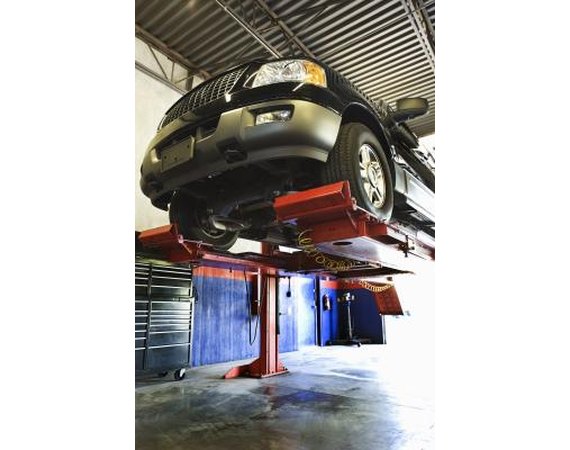
Personal property liens prevent the sale of the property in question until the lien has been satisfied in full. They can also force the sale of the property to collect the debt. Liens are commonly placed on vehicles until the loan is paid off. In other cases, liens are created through a court process following a debtor's failure to pay a debt. Liens are filed in the county where the property is located.
Personal Property Defined
Personal property includes any tangible property owned by the debtor. Examples of personal property include vehicles, boats, homes, land, books, tools, sports equipment, photography equipment and jewelry (except for a wedding ring).
How a Lien Is Placed
Liens are placed through court action or voluntary action. For example, a man wants to borrow $50,000 from his cousin to start a new business. He offers to allow the cousin to place a lien on the man's home until the loan has been paid in full. This is a voluntary lien. A forced lien occurs when a debtor fails to pay a debt to a company, person or government entity. The creditor has the right to request a lien be placed on all personal property owned by the creditor. This is done after obtaining a judgment against the creditor in civil court.
Then What?
Once a lien is placed, the property cannot be sold until the lien has been paid in full. This can be done at the time of a sale or can be done before a sale of the personal property. For example, a lien on a home for $50,000 can be paid off before the house is put on the market. If not, it can also be included in the purchase price, however, paying a lien and getting it removed is a cumbersome task that many potential buyers refuse to deal with, leading them to pass on buying the home.
Forced Sale
A forced lien sale is also possible once a lien is placed on personal property. The sale of property to satisfy a lien must be court-ordered. The order will specify exactly what personal property is to be sold to satisfy the lien. There are several restrictions on such a sale, especially if the lien is on a home. In that case, a forced sale cannot be ordered if the creditor's spouse or underage children reside in the home, or if a disabled adult child lives there. Once the sale is complete, the lien is paid and if there is any money left, the money is sent to the creditor. If the property sells for less than is owed, the creditor can continue collection efforts to collect the balance due from debtor. If the property sells for more than is owed, the debtor typically receives the balance.






0 comments:
Post a Comment